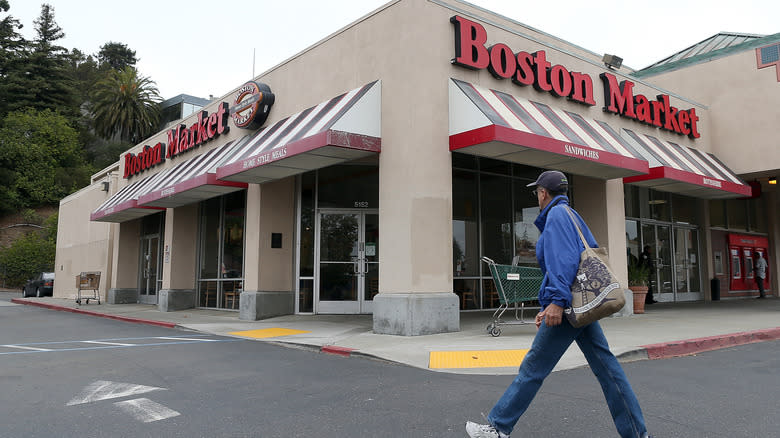A Court Ordered Boston Market To Shell Out $11.9 Million For Unpaid Bills

Pursuant to a lawsuit filed by US Foods over unpaid bills, a U.S. District Court judge has rendered a default judgment of $11.9 million against Boston Market, the fast casual restaurant chain known for its rotisserie chicken. The plaintiff's case, filed in July 2023, revolves around unmet financial obligations dating back to 2022, for which Boston Market negotiated a promissory payment agreement that was subsequently unfulfilled. After the owner, Jay Pandya, failed to respond to the filed lawsuit in a timely manner, US Foods petitioned the court to enter the summary judgment.
Presiding Judge Manish Shah granted the motion for summary judgment, citing "bad faith" and "willful disregard" of court obligations by Boston Market. Shah acknowledged that there had been compliance with court scheduling orders since November 2023 but called it "too little, too late," noting delay tactics and no genuine litigation participation interest by Boston Market owner Pandya.
Unfortunately for Pandya, the legal turmoil continues. His personal bankruptcy filing in the Eastern District of Pennsylvania Bankruptcy Court, submitted just days after missing the response deadline for the summary judgment filing, was dismissed for failure to provide requested information. Reportedly included in the now-dismissed bankruptcy claim were the millions of dollars owed to US Foods. However, Pandya has vowed to appeal the summary judgment, according to Restaurant Business, claiming that Boston Market filed a counterclaim and had been participating in discovery on the case. He also alleges overcharging and under-supplying on the part of US Foods.
Read more: 19 Popular Pizza Chains, Ranked From Worst To Best
A Snowballing String Of Trouble For Boston Market

The lawsuit by US Foods and its subsequent summary judgment of $11.9 million are only the latest developments in an ongoing saga of legal and financial troubles for Boston Market. The company launched in 1985 and grew to at least 1200 locations before it began shuttering at dozens of them. The shutdowns continued in 2023, coinciding with the US Foods lawsuit in July.
Meanwhile, Boston Market is drowning in legal quagmires, including additional lawsuits by suppliers, vendors, or distributors, as well as legal conflicts with its landlords and employees. In May of 2023, the company headquarters in Colorado were seized by the state's Department of Revenue for not paying taxes, and judgment was rendered to its landlord for lease default. Troubles haven't been confined to its home state of Colorado, but have spread into a tangled web across multiple states.
In New Jersey, all but four of the state's 31 Boston Market restaurants shut down amidst alleged employee-based violations, including unpaid wages and non-adherence to minimum wage and sick leave ordinances. Similar allegations have risen in Massachusetts and New York. Evictions have forced store closures in at least Connecticut and South Florida. The company has even been sued twice by McDonald's, which previously owned Boston Market and still holds reportedly unpaid leases on several of the properties. Whether Boston survives under the US Foods summary judgment or drags it out through an appeal has yet to be seen.
Read the original article on Tasting Table.

